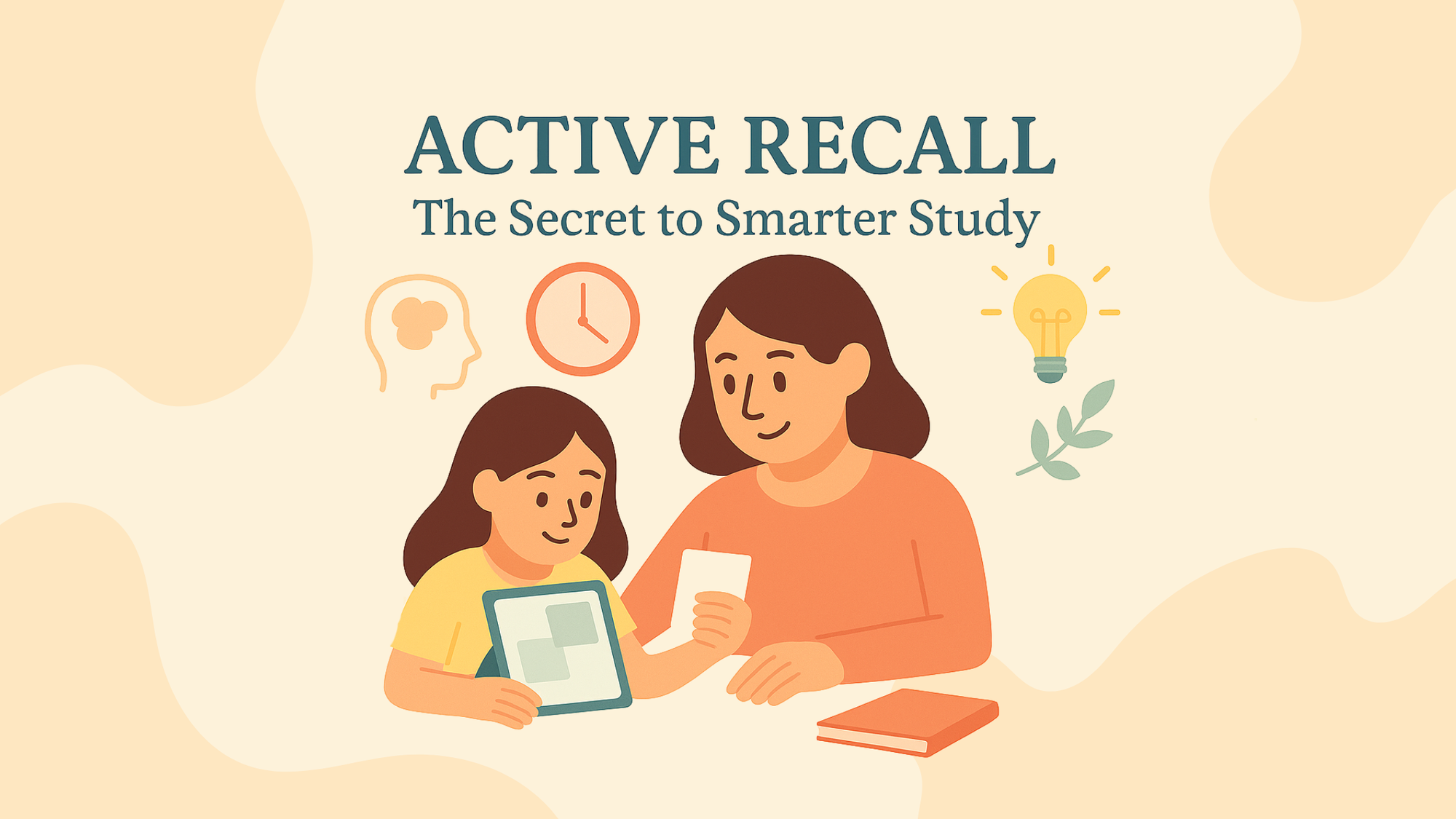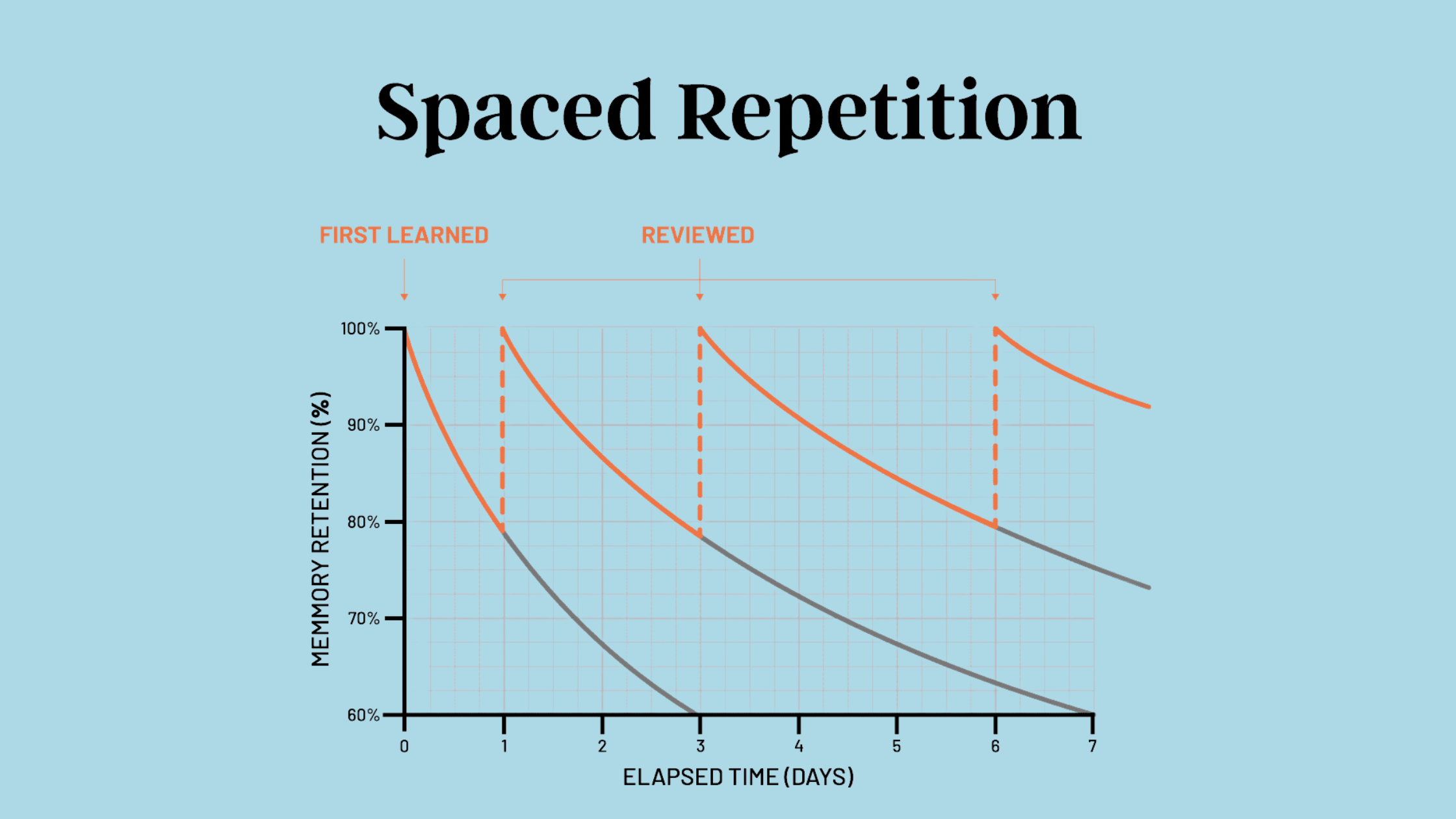From Textbooks to Triumph: Transforming Your Child's Revision with Active Recall

As a parent, you've probably watched your child spend hours hunched over textbooks, highlighting paragraphs, and rereading chapters in preparation for their GCSE exams. It's natural to think that the more time they spend reading, the better they'll perform. But what if I told you there's a more effective way for them to study—one that could save time and significantly boost their retention?
I often hear from parents concerned that despite their children's hard work, the results aren't reflecting their efforts. The common thread in these conversations is a reliance on passive studying methods, primarily just reading textbooks. While textbooks are valuable for introducing concepts, they might not be the best tool for revision. Let me share with you an approach that has helped many students excel: embracing active recall and spaced repetition, with a little help from a tool called Anki.
Why Reading Just Isn't Enough
Think about the last time you read a lengthy article or a book. How much of the information can you recall now? Our brains aren't wired to retain information simply by reading it repeatedly. This method can give a false sense of familiarity, but when it comes to recalling the details—especially under exam conditions—we often draw a blank.
The Magic of Active Recall
Active recall is a learning technique that involves actively stimulating memory during the learning process. Instead of passively reading, your child engages with the material by testing themselves, which strengthens neural connections and enhances memory retention.
Imagine your child studying the process of photosynthesis. Rather than rereading the textbook section, they could try to write down the entire process from memory or explain it aloud without looking at their notes. This forces the brain to retrieve information, making it more likely to stick.
Spaced Repetition: Timing Is Everything
Coupled with active recall is spaced repetition, a method where information is reviewed at increasing intervals over time. This technique leverages the psychological spacing effect, which helps transfer knowledge from short-term to long-term memory.

Here's how it works: after your child learns a new concept, they review it soon after, then again the next day, then a few days later, and so on. Each review reinforces the memory just as it's about to fade, effectively strengthening their recall ability.
Introducing Anki: A Smart Study Companion

You might be wondering how to put all this into practice without overcomplicating your child's study routine. That's where Anki comes in. Anki is a free, user-friendly flashcard app that incorporates both active recall and spaced repetition automatically.
With Anki, your child can create digital flashcards for any topic. The app then schedules these cards for review at optimal intervals based on how well they know each one. If they find a card difficult, Anki will show it more frequently; if it's easy, the app will wait longer before showing it again.
One of Anki's standout features is image occlusion. This allows your child to take a diagram—like the structure of a cell—and cover up labels or sections. When they review the card, they'll have to recall the hidden parts, which is particularly helpful for visual subjects like Biology and Chemistry.

Making the Transition
Encouraging your child to shift from passive reading to active engagement might seem like a big change, but the benefits are substantial. They may find studying becomes more interactive and even enjoyable as they start to see real progress.
Here's how you can support them:
- Start Together: Sit down with your child and explore Anki together. Create a few flashcards to get them comfortable with the process.
- Set Achievable Goals: Encourage them to set daily or weekly targets for reviewing their flashcards.
- Celebrate Small Wins: Acknowledge improvements and milestones to keep them motivated.
The Bigger Picture
By adopting active recall and spaced repetition, your child isn't just preparing more effectively for their GCSEs—they're also developing learning strategies that will benefit them throughout their education. These techniques promote deeper understanding and long-term retention, skills that are invaluable beyond any single exam.
If you're interested in learning more about how Anki works or how to implement these strategies, check out this simple 15-minute video guide. Although aimed towards medical school preparation, the same applies to your child's GCSE revision.
Feel free to reach out if you have any questions or if you'd like more tips on supporting your child's learning journey.
New groups start in July.
👉 Join the Priority Access List here to get early access when spaces open.

